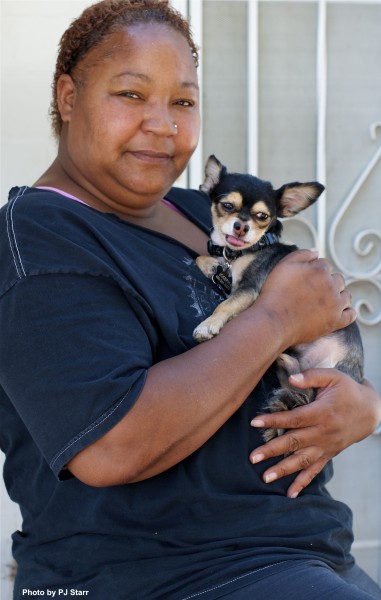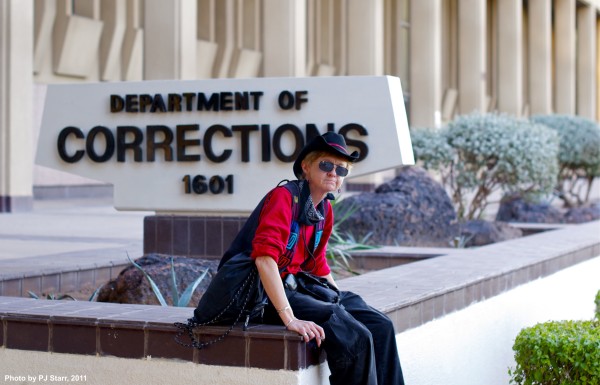This coming #fundingFriday 4 #sexworkerrights BPPP will raise awareness about a community fundraiser in support of Kini Seawright and Peggy Plews who are both advocates for the rights of sex workers, prisoners and parents.
Peggy and Kini lost their house and belongings in a house fire in Michigan. They had very recently moved there from Phoenix, Arizona. Their role in progressive politics in Phoenix is beyond dispute. They have opened their home, shared their food, fought in the streets and given everything they had to help people victimized by the police and prison industrial complex. Kini and Peggy were there at the very first meeting of SWOP Phoenix in 2013, the posters for the first rally was made at their house, on their porch. They encouraged so many people–including the ACLU AZ–to #standwithMonica during the recent years of campaign lead by Monica Jones to challenge the Phoenix “manifestation” statute. Both Peggy and Kini are artists and writers. Peggy is the creator of magnificent public chalking art challenging injustice. Kini is a contributor to the anthology Red Umbrella Babies and recently joined the editorial collective to take a larger role in the book process.
They are trying to raise $600 to help them pay a deposit on a new place and rebuild their lives, but we at BPPP think as a community of sex workers and allies we can do so much more than that. Let’s make a nice surprise for them and take this to $1000 or more.
What is #fundingFriday 4 #sexworkerrights? Last July in preparation for the International AIDS Conference, sex workers from around the world created a consensus statement and began occupying #fundingFriday every week to raise awareness of the lack of resources for projects by and for sex workers. We follow this sex worker lead campaign supported by Scarlet Alliance and sex workers globally. Throughout 2015 the Best Practices Policy Project will highlight community fundraisers to support the things that sex workers find important.


